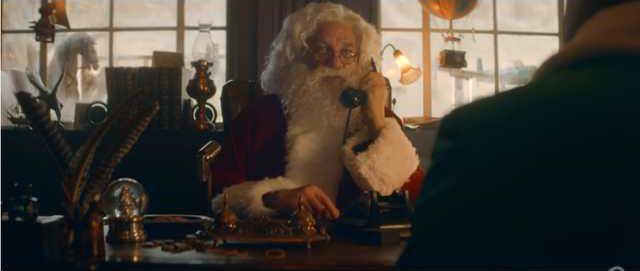THE NORTH POLE When all the cards are on the table, the person who cares about communication more than anyone else in the entire world is Santa Claus.
He and his elfin team work hard to make sure every child is heard whether theyre sitting on Santas lap, writing him letters, or even speaking to him on the phone.
But no matter how hard ol Saint Nick and his team of diminutive helpers work, there is one language they just dontunderstand. And thats the particular dialect of English spoken in New Zealand.
With all the shifting vowels, things can get tricky for non-Kiwi humans beings as well as immortal beings like Santa. In fact, youll see just how tricky it gets when Santa starts fielding Christmas present phone calls from all the good boys and girls in New Zealand.
In the video, when a kid asks for a new bed, Santa hears new beard. It only goes downhill from there until an elf storms in with a ridiculous array of toys (AKA Santas flubs).
Thats right, not even Santa is perfect.
Luckily (and because this is the internet) there are crew members from New Zealand Air with apparition powers that come to Santas aid. They start by launching into a twisting explanation of how vowels work in the Kiwi dialect, which proves that it can be difficult for even a magical man to understand.
As amazing as that bit is, the best part of the video is the national sense of humor with citizens that are willing and even proud to poke fun at themselves. Good on ya, mates.
He and his elfin team work hard to make sure every child is heard whether theyre sitting on Santas lap, writing him letters, or even speaking to him on the phone.
But no matter how hard ol Saint Nick and his team of diminutive helpers work, there is one language they just dontunderstand. And thats the particular dialect of English spoken in New Zealand.
With all the shifting vowels, things can get tricky for non-Kiwi humans beings as well as immortal beings like Santa. In fact, youll see just how tricky it gets when Santa starts fielding Christmas present phone calls from all the good boys and girls in New Zealand.
In the video, when a kid asks for a new bed, Santa hears new beard. It only goes downhill from there until an elf storms in with a ridiculous array of toys (AKA Santas flubs).
Thats right, not even Santa is perfect.
Luckily (and because this is the internet) there are crew members from New Zealand Air with apparition powers that come to Santas aid. They start by launching into a twisting explanation of how vowels work in the Kiwi dialect, which proves that it can be difficult for even a magical man to understand.
As amazing as that bit is, the best part of the video is the national sense of humor with citizens that are willing and even proud to poke fun at themselves. Good on ya, mates.








